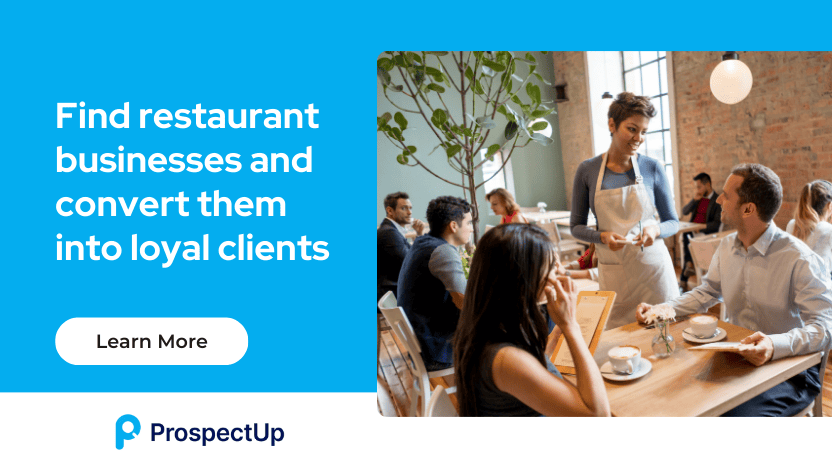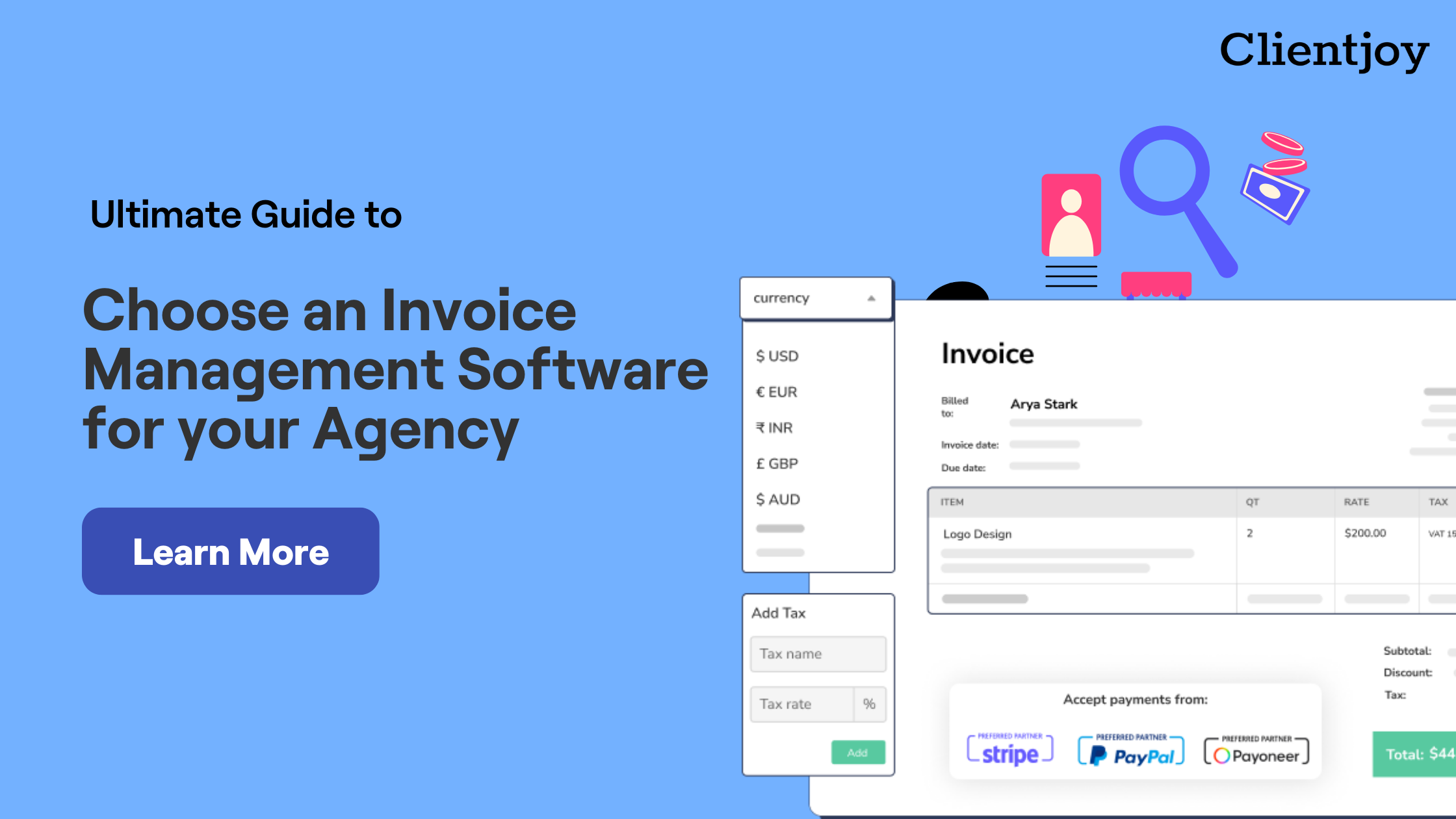Table of Contents

Connecting with restaurant owners presents both unique challenges and opportunities. These busy professionals juggle constant operational demands, staff management issues, and razor-thin profit margins—all while trying to create exceptional dining experiences. Their attention is precious and limited.
For marketing agencies and software providers targeting the restaurant industry, this means generic outreach approaches often fall flat. Restaurant owners need solutions that directly address their specific pain points, demonstrate clear ROI, and respect their demanding schedules.
This comprehensive guide outlines 10 restaurant-specific lead generation strategies that will help you cut through the noise, build authentic relationships with restaurant decision-makers, and convert them into loyal, long-term clients.
Tldr;
- Key tactics include industry-specific content marketing with a culinary focus, hosting tech demo dinners, strategic networking at industry events, building partnership ecosystems, and restaurant-specific email campaigns.
- Additional strategies cover chef and owner influencer programs, hyper-local marketing initiatives, targeted video content, technology integration workshops, and data-driven benchmark reporting.
- The guide emphasizes understanding restaurant owners' unique challenges, respecting their time constraints, and delivering immediate value before requesting commitment.
Ways to generate restaurant leads for your marketing agency or SMB software
Here are some ways you can find restaurant owners near you and generate leads for your business.
1. Industry-Specific Content Marketing with Culinary Appeal
Restaurant owners are passionate about food, hospitality, and creating memorable experiences. Your content should reflect this passion while addressing their business challenges.
Create "Menu-Style" Resource Collections
Develop comprehensive resource libraries organized like restaurant menus with "appetizers" (quick tips), "main courses" (detailed guides), and "desserts" (inspirational success stories). This familiar format resonates with restaurateurs and makes information consumption intuitive.
Develop Case Studies with Measurable Results
Restaurant owners are results-driven. Create case studies showcasing tangible improvements in key metrics that are relevant to your product or service:
- 22% increase in average check size through menu engineering
- 15% reduction in food waste through inventory management
- 30% boost in weekend reservations through targeted digital campaigns
Share Operational Efficiency Content
Create guides on streamlining back-of-house operations, labor optimization during slow periods, and technology integration. These are all major pain points for restaurant owners.
Time your content strategically around the restaurant industry's seasonal patterns. Avoid major holidays when owners are extremely busy, and focus on shoulder seasons when they have more bandwidth for considering new solutions.
2. Restaurant Tech Demo Dinners
Transform traditional product demonstrations into memorable dining experiences that showcase your solutions in action.
Host Small-Group Dining Events
Organize intimate dinners (6-10 restaurant owners) at partner establishments. Structure the evening to demonstrate your technology or service organically throughout the meal.
For software providers, set up demonstration stations where guests can experience your solution firsthand between courses. For marketing agencies, present mini-case studies during relevant moments in the dining experience.
Partner with Innovative Restaurants
Collaborate with restaurants already using your solutions to host these events. Their owners become powerful advocates, sharing real-world implementation experiences with prospects.
A marketing agency specializing in restaurant social media successfully hosted a series of "Instagram-worthy" dining events where attendees experienced firsthand how photogenic menu items and spaces drive engagement. Throughout the meal, they demonstrated how their services had increased the host restaurant's bookings by 28% through strategic content planning and execution.
3. Industry Event Networking
Restaurant industry trade shows, food festivals, and culinary conferences offer prime opportunities to connect with decision-makers in an environment where they're actively seeking new solutions.
Host Educational Workshops
Rather than simply exhibiting, offer short (30-45 minute) workshops addressing specific challenges. Topics like "Maximizing Profitability During Inflation" or "Tech Stack Essentials for Modern Restaurants" position you as an industry expert.
Create Experience-Based Booth Designs
Design your exhibition space to mimic a restaurant environment related to your solution. A reservation software company might create a host stand experience demonstrating how their system reduces wait times and increases table turns.
Organize Post-Event Tastings
Host intimate gatherings after main event hours where prospects can relax, network, and learn more about your offerings in a low-pressure environment.
Schedule One-on-One Consultations
Offer free 20-minute consultation slots during events where restaurant owners can discuss their specific challenges and receive personalized recommendations.
4. Restaurant Industry Partnership Ecosystem
Develop strategic partnerships with complementary (non-competing) restaurant service providers to expand your reach and enhance your value proposition.
Food and Beverage Suppliers
Collaborate with suppliers who already have established relationships with restaurant owners. Co-create resources on topics like inventory management or menu optimization that feature both your expertise.
Restaurant Equipment Providers
Partner with equipment dealers to offer bundled solutions. For example, a POS software provider might partner with a kitchen equipment supplier to offer integrated solutions that improve operational efficiency.
Culinary Schools and Education Programs
Establish relationships with culinary education programs to reach new restaurant entrepreneurs early in their journey. Offer workshops or guest lectures that provide value while introducing your services.
Restaurant Designers and Architects
Form alliances with firms that help restaurants design or renovate their spaces. These partnerships can position your solutions as integral components of modern restaurant design.
For example, a restaurant marketing agency could partner with a major food distributor to create a quarterly "Menu Profitability Workshop" for the distributor's restaurant clients. The workshops addressed how to craft profitable menus with the distributor's products while incorporating the agency's expertise in menu design and promotion. This collaboration generated a steady stream of qualified leads who had already experienced the agency's expertise firsthand.
5. Email Marketing Campaigns
Email remains powerful for restaurant lead generation but requires industry-specific customization to cut through inbox clutter. Structure campaigns around restaurant seasonality. Offer pre-holiday marketing support in October or inventory management solutions in slower winter months when owners have more bandwidth.
Restaurant professionals respond to visual storytelling. Use before/after imagery, video testimonials, and visual data representations rather than text-heavy explanations. Craft different messages for fine dining, fast casual, food trucks, and other segments. Reference specific challenges and opportunities for each category to demonstrate industry knowledge.
P.S. If you want to find email addresses of restaurant owners or managers, a lead platform like Prospectup.ai can help.
6. Influencer Program
Leverage the power of peer recommendations by establishing a network of respected restaurant professionals who use and endorse your solutions. Look for restaurant owners who are respected in local or niche communities and already demonstrate forward-thinking approaches to technology or marketing. Offer program benefits that address restaurant pain points: preferred pricing, early access to new features, or complimentary consulting hours on topics beyond your core offering.
Organize exclusive roundtable discussions where your influencers can share experiences and best practices with each other. This adds value to their participation beyond financial incentives. Work with program participants to document their success stories, showcasing real results that resonate with other restaurant professionals.
7. Hyper-Local Marketing Initiatives
Restaurant owners are deeply connected to their local communities and respond well to outreach that demonstrates an understanding of their specific market.
- Become active in local business organizations where restaurant owners participate. Offer to share expertise through presentations on topics like "Digital Marketing for [Neighborhood] Restaurants."
- Build connections with food critics, bloggers, and publications that cover the local dining scene. Contribute expert content or sponsor relevant features that position your brand as a restaurant industry ally.
- Create and share market reports with insights specific to different neighborhoods or dining districts. Include consumer behavior trends, competitive analysis, and growth opportunities unique to each area.
- Support food-focused community events where restaurant owners participate. This creates organic networking opportunities and associates your brand with community engagement.
8. Host Valuable Workshops
Host hands-on sessions, helping restaurant owners optimize their existing operations or marketing while introducing your complementary solutions.
Technology Audit Sessions
Offer free assessments of restaurants' current technology stack and marketing needs, identifying integration opportunities and efficiency gaps.
Custom Implementation Roadmaps
Provide each participant with a personalized technology roadmap that includes actionable next steps, regardless of whether they purchase your solution immediately.
Follow-Up Support
Offer 30-day email support for workshop attendees, creating ongoing touchpoints and demonstrating commitment to their success.
9. Benchmark Reports and Competitive Analysis
Develop data-driven insights that help restaurant owners understand their performance relative to industry standards and local competitors. You can collect and anonymize operational data from client restaurants to establish meaningful benchmarks for different restaurant categories and locations. Provide forward-looking insights on consumer behavior, ingredient costs, and technology adoption to help restaurants prepare for upcoming changes.
Summing Up
The most successful lead generation strategies for restaurant owners share common elements: respect for their time constraints, demonstration of industry-specific knowledge, and delivery of immediate value before requesting commitment.
By implementing these targeted approaches, marketing agencies and software providers can transition from being perceived as generic vendors to valued partners who understand the unique challenges of restaurant operation. This partnership mindset not only generates more qualified leads butalso establishes foundations for longer client relationships and stronger retention rates.
Remember that restaurant owners face constantly evolving challenges, from labor shortages to changing consumer preferences. The agencies and software providers who consistently demonstrate an understanding of these shifts while offering practical solutions will earn trusted advisor status—the ultimate position for sustainable business growth in the restaurant industry.











